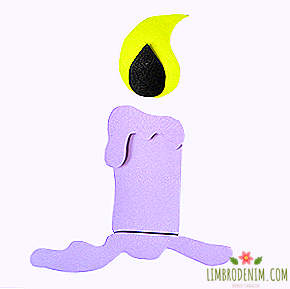Caries, braces and yellow enamel: 10 myths about dental health
It seems that we all know about dental care: caries appears because of sweets, teeth need to be cleaned after each meal, white enamel is better than yellow. But what if scientists have a different opinion? We turned to the results of research and recommendations of reputable organizations, looked at ten popular opinions about the health of the teeth and oral cavity - and debunked many myths. While putting the toothbrush aside - perhaps you are doing something wrong.

It is better to remove wisdom teeth just in case.
"Eight" - these are the teeth, access to which the doctor is often difficult, and to treat them is not easy because of the unique anatomy. If the number of roots (one, two, or three) for the remaining teeth is usually known in advance, then anomalies are often found in wisdom teeth, for example, a couple of dozen thin roots intertwined. In addition, in the process of evolution, due to the transition of people to relatively soft food, the jaws became less developed and the last teeth often lack space - we all heard stories about wisdom teeth growing sideways or in some other wrong direction.
However, teeth extraction is not advisable for prophylaxis. First, the removal of teeth is in itself an unpleasant operation with the risk of complications. Secondly, keeping them healthy is not more difficult than all other teeth: first of all, it is important to take care of hygiene and get a brush even to “hard-to-reach places”, and the treatment can now be carried out even in a difficult case using a special dental microscope. In addition, a healthy wisdom tooth may be useful in the future with the loss of the first molar ("six"), these teeth are most susceptible to destruction for several reasons. Recently, in such cases, replantation is increasingly being performed - the eighth tooth is transplanted to the place of the removed sixth tooth.
According to experts of the American Dental Association, it is worth getting rid of "G-8s" only in certain cases: pain radiating to the ear or head, repeated gum inflammation behind the last lower tooth, the formation of a cyst or tumor, damage to neighboring teeth, deep caries. If wisdom teeth do not bother, they have erupted and grow correctly, do not rest against adjacent teeth, do not interfere with chewing, and are easily hygienized, unnecessary interventions are not necessary.
Teeth can be perfectly cleaned with an apple
Most fruits have a low pH, that is, they are acidic, even if it does not affect the taste. Citrus, grapes, pomegranates, pineapples, apples and peaches have the highest acidity, and among vegetables, first of all, tomatoes. Acid products can compete with sugar in their destructive power to the teeth - in fact, sugar is not harmful to enamel by itself, but because oral bacteria process it, releasing acid. Acid destroys the mineral base of enamel (this process is called acid erosion), and a little later the bacteria are connected, causing caries.
Even with good hygiene, the acidic environment in the oral cavity can contribute to the increased sensitivity of the teeth - the enamel does not have time to recover; This effect is given not only fruits, but also carbonated drinks and juices. Immediately after acidic products, brushing your teeth is not recommended - there is a risk of damaging the enamel, but rinsing your mouth (with water or a special tool) or neutralizing the acidity with a piece of cheese is a good approach.
It is dangerous for pregnant women to treat their teeth.
The myth that it is dangerous for pregnant women to go to the dentist has existed for a long time. For example, in the American Dental Journal for 1883, it was told about a miscarriage that occurred a day after a woman had a tooth removed. Nevertheless, now all experts are inclined to think that it is necessary to deal with teeth during pregnancy, and with special attention. Due to hormonal changes during this period, gingivitis of pregnant women often occurs - swelling and bleeding of the gums. A study in 2011 revealed that periodontitis can provoke premature birth or affect the body weight of the newborn; This was confirmed in another study.
Scientists have not yet confirmed the final causal relationship between these phenomena: there are too many risk factors affecting the course of pregnancy and childbirth. But the damage to the source of infection in the head is completely obvious and certainly outweighs the small risks or discomforts associated with treatment. Local anesthesia is safe for both women and fetuses, it does not contribute to miscarriage, the appearance of birth defects, premature birth or underweight of the newborn - in fact, the anesthetic works at the local level and hardly penetrates the blood, not to mention passing through the placenta. The main thing is to inform the dentist about the pregnancy so that he can find the right medication. Radiography of teeth, if properly performed, is also considered a safe procedure, and professional dental hygiene during pregnancy should be done at least once.

Creaking teeth cause parasites
Strong grip of the teeth, sometimes with an audible gnash, is called bruxism. Although this condition is considered to be one of the sleep disorders (usually it manifests at night), teeth and other tissues seriously suffer from it: the type of gums can change, the jaw bone suffers, and visible cracks appear on the enamel. Pretty quickly (in a few years), you can see how the teeth become shorter due to abrasion, and along with this sagging facial tissues. Other symptoms of bruxism are headaches in the morning, a feeling of poor-quality sleep, tinnitus, pain in the temporomandibular joint and masticatory muscles.
According to experts at the Mayo Clinic, it is still not completely clear why bruxism occurs - most likely, it is a combination of physical (muscle tone disorder), psychological (stress) and genetic factors. Bruxism is common among children; The myth that it occurs due to worms is often spread by worried parents. In fact, gnashing or squeezing may be a reaction to teething pain or stress when preparing for a performance or exam, and children with attention deficit hyperactivity disorder are prone to it. The connection between bruxism and parasitic infections, scientists have not found. To reduce the load on the jaws and teeth, you need to discuss the situation with the dentist: most likely, the doctor will suggest wearing a special unloading mouthpiece at night.
Milk teeth have no roots
Baby teeth are laid before the birth of the child, and begin to erupt in 4-6 months. It usually takes about 2-2.5 years to grow all twenty teeth. Closer to six years, milk teeth in a certain order begin to stagger and fall out, and permanent ones replace them; the process of changing teeth lasts on average up to 11-12 years. When a tooth falls out, he really does not have a root, because by this time it has resolved. New, permanent teeth, moving to the right place, “put pressure” on temporary roots, gradually “dissolving” them.
Understanding how milk teeth are arranged is another reason for how to care for them. The roots of the milk teeth hold a place in the jaw for the permanent: if the tooth is removed prematurely due to caries or pulpitis, problems with the position of the permanent teeth are likely to occur. In milk molars (fourth and fifth teeth) there are two or three roots, and the primordia of the permanent teeth in this case are located directly between these roots - so that strong inflammation can harm even teeth that have not yet been cut.
Start using a toothbrush is, as soon as the first baby tooth was cut. Before that, it is better to enroll to a pediatric dentist - he will not only conduct an inspection, but also show you how to properly brush the child’s teeth and help you choose a brush and paste. The American Academy of Pediatric Dentistry recommends using fluoride toothpaste already when the first tooth appears (the American Dental Association confirms this), fluoride should be between 1,000 and 1,500 ppm.
Paste gives nothing healthy teeth
According to WHO, caries and periodontitis is one of the most common diseases in the world. Almost 100% of the adult population ever complained about black spots in their teeth. The main cause of caries is not good hygiene; However, it is important not only to brush your teeth well, but also to help enamels replenish lost minerals.
By and large, you can clean off the plaque from the teeth with a brush with water - but the pastes do help, for example, by dissolving the bacterial film with enzymes that make up their composition. More importantly, the paste contains fluoride - it makes the teeth more resistant to the effects of acids and prevents the development of caries; moreover, the enamel is dense, smooth, rich in minerals, easier to clean, and the coating on it is not formed so actively. Now it is considered that it is not necessary to rinse your mouth immediately after cleaning - it is better to give fluorine more work.

Braces spoil enamel
Teeth after installing braces require special care. Just brushing your teeth is not enough - you need to use dental floss or irrigator, special orthodontic brushes and brushes, avoid certain products (for example, hard apples, nuts or toffee), and after each meal it is advisable to rinse your mouth with water. If you do not follow these recommendations, the chances of detecting caries or gingivitis are increased.
But the reason for the increased risk is not the braces themselves, but the fact that they require special attention: orthodontic structures greatly increase the surface area on which bacteria can be fixed, therefore cleaning should be done carefully. The good news is that orthodontic treatment itself improves dental health in the future: evenly spaced teeth are better cleaned, less prone to caries and periodontitis, and the load is better distributed among them. Brackets also do not affect the thickness of the enamel - this was confirmed during the study, where the state of the enamel was evaluated before and after orthodontic treatment using optical coherence tomography (OCT).
Bad breath says stomach problems
Every fourth person on the ground complains of bad breath. Halitosis (medical name) is the third most common reason for contacting a dentist (caries and gum disease are in the first two places). Doctors divide all causes of halitosis into two groups: related and not related to the oral cavity. And in 90% of cases, the smell is due to local problems: poor hygiene, caries, and periodontitis. Most often, you don’t need to complicate your life and run to a gastroenterologist: the smell may appear because of the remnants of food between the teeth (and with caries it is accompanied by the smell of bacteria and decaying organic tissue) - so the problem is solved in the dentist’s chair.
Among the common causes of halitosis, not related to the oral cavity, can be called tonsillitis (inflammation of the tonsils) and sinusitis (inflammation of the paranasal sinuses). Sometimes the smell is due to other causes - it is insufficient production of saliva (xerostomia); the use of certain drugs, including chemotherapy; premenstrual syndrome and menstruation; smoking and drinking; fasting and low carbohydrate diet. It also happens that a person constantly worries about whether he does not smell from his mouth, although in fact there is no smell - this psychological condition is called halitophobia.
Smoking is bad, but only for the lungs
Every year, more than 640 thousand cases of oral cancer are diagnosed worldwide - this is the eleventh most common type of malignant tumors. The main risk factors are smoking and, to a lesser extent, alcohol. Their combination is especially dangerous: the risk of developing oral cancer in smokers is three times higher than in non-smokers; in people who smoke and abuse alcohol, this risk increases up to thirty times. Other risk factors include human papillomavirus, which can be transmitted through oral sex, excessive exposure to ultraviolet rays, regular chewing of tobacco or betel nuts (which are popular in South-East Asia) and unhealthy diets.
WHO claims that early detection and treatment with modern methods can cure oral cancer completely - this also applies to such tumors as cancer of the breast, cervix or colon. But, unfortunately, according to the report of the Ministry of Health of the Russian Federation, in 2014, more than 62% of oral tumors were detected in the late stages. Both in Russia and in the world most often these diseases occur in men. The best way not to miss suspicious changes is to come to the doctor for a checkup and professional hygiene every six months.
The whiter the teeth the better
Studies show that up to half of people are dissatisfied with their teeth color - and white teeth seem to them not only attractive, but also more healthy. In fact, the range of natural shades of healthy teeth is wide - from grayish to yellowish. It depends on the shade and transparency of enamel (most often it is bluish-white and transmits light), as well as dentin lying under it, usually gray-yellow. These are shades that are genetically determined, so even the cleanest teeth can look whiter for some people than others. With age, the enamel is gradually erased and the dentin shines through more - and the teeth darken. In addition, a bacterial film is constantly formed on the surface of the enamel, which is stained, especially due to smoking, coffee, red wine and other coloring products.
To maintain the enamel smooth and radiant helps regular professional cleaning, in which just removed painted patina; she will not perform miracles and will not make the enamel tint lighter than the genetics set. If you want to make your teeth even brighter, whitening will come to the rescue - a more complicated and long procedure that really removes pigment particles from enamel. Finally, if the shade does not suit you at all, you can cover your teeth with ceramic veneers - but they will not be as white as snow or a sheet of paper.
Photo: Vovk - stock.adobe.com, drummatra - stock.adobe.com, SMA Studio - stock.adobe.com, CDON





